1. Parking Anywhere You Please
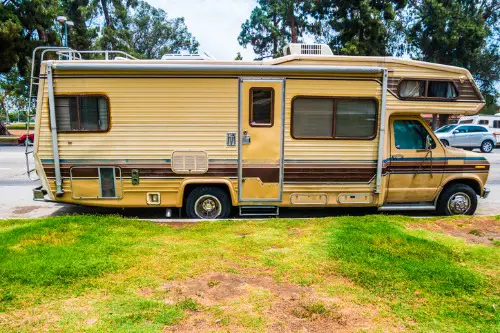
There’s nothing that frustrates locals more than RVs parked haphazardly on streets or in non-designated areas. They take up space that’s already limited, especially in small towns where every spot counts. Drivers often assume their vehicle’s size gives them some leeway, but residents see it as inconsiderate. The result? Blocked driveways, crowded sidewalks, and annoyed neighbors.
When you roll into a new town, it’s worth researching where RV parking is actually allowed. Many cities have strict rules about oversized vehicles, and fines can add up quickly. Using official campgrounds or RV parks isn’t just safer—it keeps you out of the crosshairs of locals. Plus, it often leads to better amenities and hookups than a random street spot ever would.
2. Loud Generators at Odd Hours

Running a generator at 7 a.m. might feel like a practical choice to power up, but to locals, it’s an unwelcome wake-up call. Noise travels differently in small towns, especially near residential areas, and an RV generator can feel like a jackhammer. People aren’t opposed to RVs themselves—they just want a bit of peace.
Generators are often allowed in designated areas or during specific hours, and ignoring those rules makes neighbors resentful. It’s also a good safety practice: prolonged generator use can overheat or cause carbon monoxide issues. By scheduling your power needs thoughtfully, you’re keeping everyone happy. Even a little courtesy goes a long way in building goodwill.
3. Ignoring Local Traffic Laws

RVers sometimes treat themselves like tourists with special privileges, but locals notice every infraction. Speeding through small streets, cutting corners, or ignoring one-way signs can be dangerous. It’s not just an etiquette issue—it’s a safety one. Residents see it as a lack of respect for their town.
Every town has unique traffic quirks: narrow lanes, hidden stop signs, or tricky intersections. Taking the time to follow the rules prevents accidents and keeps the town’s streets functional for everyone. Locals often have years of experience navigating these streets, and they appreciate when visitors show the same mindfulness. Following the law makes your visit smoother and keeps you off the radar of annoyed citizens.
4. Leaving Trash Behind

An RV has plenty of storage, yet some travelers still dump trash in public spaces. Littering leaves a negative impression and is one of the quickest ways to annoy locals. Whether it’s snack wrappers, cigarette butts, or disposable cups, leaving trash behind screams “I don’t belong here.”
Many small towns have limited waste management resources, so even a little garbage can cause a big problem. RV parks and campgrounds usually have designated disposal areas for a reason. By packing out what you bring in—or using proper disposal spots—you’re showing respect. Locals notice the difference, and it affects how welcome you feel on your next visit.
5. Driving Too Slowly in Busy Areas
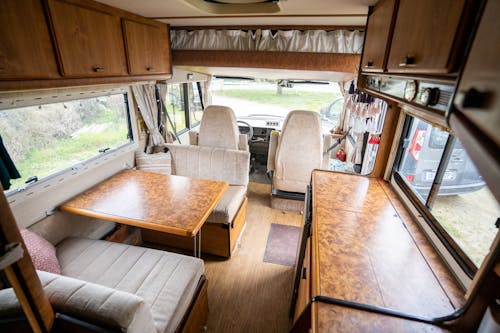
RVs naturally move slower than cars, but some drivers take it to extremes in town centers. Crawling through busy streets creates traffic backups and frustrates everyone behind you. It can also make locals late for work or errands. Slow driving in these areas signals a lack of awareness, not caution.
The key is balancing safety with flow. Use pull-outs or parking lots to let traffic pass when needed, and plan routes to avoid congested streets. Being considerate on the road helps maintain goodwill with the community. Everyone benefits when traffic moves efficiently, even if your home on wheels can’t zoom past.
6. Taking Up Multiple Campsites

Some RVers assume they need extra space for comfort, but reserving two or three sites at a campground frustrates other visitors. It reduces availability for other travelers and feels entitled. Campgrounds often operate on tight capacity, especially during peak seasons. Locals and fellow RVers notice when someone monopolizes more than their fair share.
Stick to your assigned site, even if it’s a tight fit. The campgrounds are designed to accommodate your RV size safely without encroaching on neighbors. Following the rules makes your stay smoother and keeps the park running efficiently. Respecting shared spaces is a small gesture that goes a long way in communal settings.
7. Not Respecting Quiet Hours
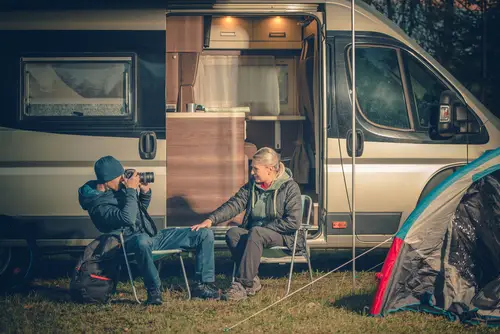
RVers sometimes keep TVs, music, or gatherings going late into the night. While it might feel harmless to them, locals living nearby don’t always share the same schedule. Nighttime noise disrupts sleep and can lead to complaints. Quiet hours exist for a reason: everyone deserves rest.
Even inside campgrounds, sound travels farther than expected. Being mindful of volume and activity during designated quiet hours earns you respect and reduces friction. Using headphones or moving social activities to a common area can help. Thoughtful timing shows you care about the community around you.
8. Blocking Scenic Spots
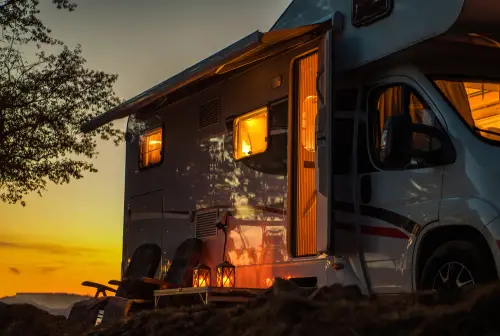
Some RV drivers stop wherever a view looks good, even if it blocks smaller parking areas or trailheads. Locals see this as selfish, especially when it prevents access for hikers or photographers. Scenic spots often have limited space, and an oversized vehicle can create congestion. Taking up too much room diminishes the experience for everyone else.
Planning ahead helps you avoid this issue. Many popular viewpoints have designated RV pull-offs or parking areas. Using these spaces shows respect for both the environment and the people who live there. A little awareness keeps nature enjoyable for everyone.
9. Ignoring Local Recommendations
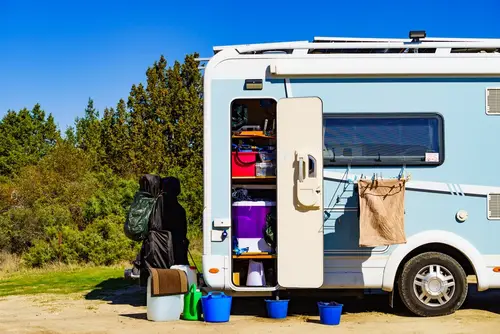
RVers sometimes stick to big-name chains or touristy attractions, dismissing advice from locals. While not offensive in a direct way, it can come across as unappreciative. Residents love sharing hidden gems, and ignoring their tips feels dismissive. Locals notice when visitors engage only superficially.
Asking for guidance can improve your trip and reduce stress. From restaurants to quiet trails, locals know shortcuts and secret spots. Incorporating their advice can make your stay more enjoyable while showing respect for the community. It’s a win-win: you discover more, and they feel acknowledged.
10. Driving Through Residential Neighborhoods

Some RVers use residential streets as shortcuts without realizing the impact. Tight corners, parked cars, and playgrounds make these streets tricky for oversized vehicles. Locals get frustrated because it disrupts their daily routines. Heavy traffic in quiet neighborhoods often leads to complaints.
Maps and GPS tools often suggest routes unsuitable for RVs. Taking main roads—even if slightly longer—avoids friction and prevents accidents. Respecting neighborhood integrity is part of being a considerate visitor. Every town appreciates when traffic flows responsibly.
11. Ignoring Waste Dumping Regulations
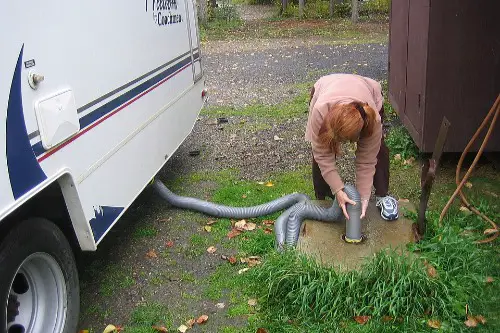
RVers need to empty gray and black water responsibly, yet some ignore rules. Dumping in unauthorized areas contaminates the environment and annoys residents. It’s a health hazard, and towns take it seriously. Locals are understandably protective of their water systems.
Most campgrounds and service centers have clear procedures for waste disposal. Using these facilities is straightforward and ensures compliance with local ordinances. Doing it correctly reflects well on RV travelers as a whole. Neglecting proper disposal has consequences far beyond a single visit.
12. Acting Like Tourists Own the Place

Finally, treating a town like it exists solely for your visit rubs locals the wrong way. Loud selfies, blocking sidewalks, or acting oblivious to local norms signals entitlement. Small towns often rely on tourism, but that doesn’t mean they tolerate careless behavior. Being aware and humble goes a long way.
Engage respectfully with local businesses, residents, and customs. Following simple etiquette—like waiting your turn, respecting spaces, and being polite—can completely change your experience. People notice when visitors show appreciation instead of assuming. A thoughtful approach leaves both sides smiling.
This post 12 Travel Choices That Annoy Locals Everywhere RVers Go was first published on Greenhouse Black.
